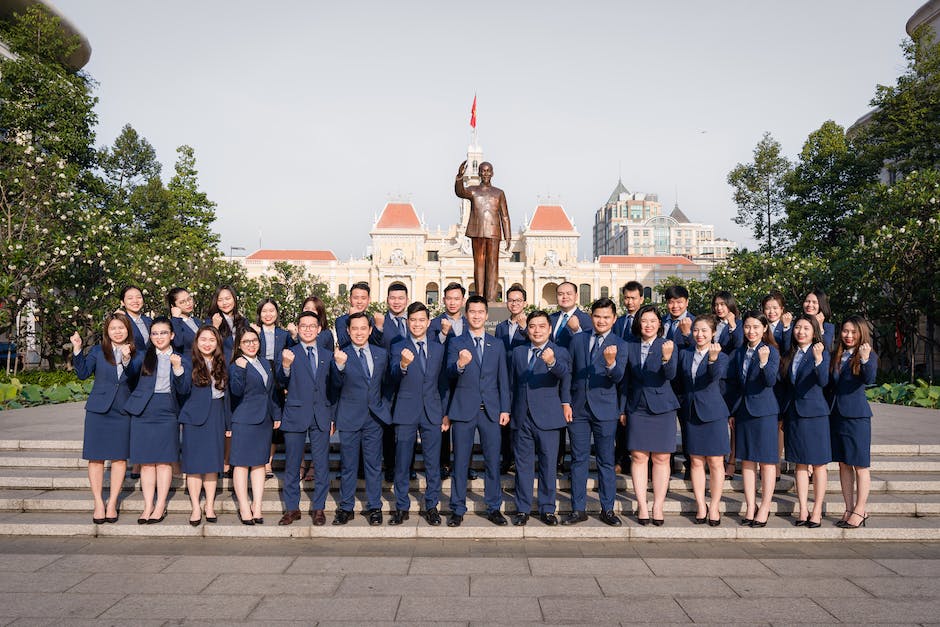Table of Contents
“Bridging the Gap: Desmond Tutu’s Inspiring Fight Against Apartheid”
Introduction
Desmond Tutu, a renowned South African cleric and human rights activist, played a pivotal role in the fight against apartheid. His inspiring story of resilience and determination in bridging the gap between racial divides has left a lasting impact on the world. This article explores Tutu’s journey and his unwavering commitment to justice, equality, and reconciliation during one of the darkest periods in South Africa’s history.
The Early Life and Education of Desmond Tutu
Desmond Tutu, a renowned South African cleric and human rights activist, is widely recognized for his tireless efforts in fighting against apartheid. Born on October 7, 1931, in Klerksdorp, South Africa, Tutu’s early life and education played a crucial role in shaping his future as a prominent advocate for justice and equality.
Growing up in a racially divided society, Tutu experienced firsthand the injustices and discrimination that were deeply rooted in the apartheid system. Despite the challenges he faced, Tutu’s parents instilled in him a strong sense of faith and the importance of education. These values would become the foundation of his lifelong commitment to social justice.
Tutu attended primary school at Johannesburg Bantu High School, where he excelled academically and demonstrated exceptional leadership skills. His passion for education and his desire to make a difference in the lives of others led him to pursue a career in teaching. Tutu enrolled at the Pretoria Bantu Normal College, where he obtained his teaching diploma in 1954.
After completing his studies, Tutu taught at various schools in Johannesburg, including the Bantu High School in Soweto. During this time, he witnessed the devastating effects of apartheid on his students and their families. The racial segregation and inequality he observed fueled his determination to fight for justice and equality.
In 1955, Tutu decided to pursue further education and enrolled at the University of South Africa. He studied theology and graduated with a Bachelor of Divinity degree in 1958. Tutu’s theological studies deepened his understanding of the Christian faith and its teachings on justice and compassion. It was during this time that he began to see his role as a religious leader in the struggle against apartheid.
After completing his studies, Tutu was ordained as an Anglican priest in 1960. He served as a curate in various parishes before being appointed as the Anglican Dean of Johannesburg in 1975. As a religious leader, Tutu used his position to speak out against apartheid and advocate for nonviolent resistance.
Tutu’s commitment to justice and equality did not go unnoticed. In 1978, he was appointed as the General Secretary of the South African Council of Churches (SACC). In this role, Tutu became a prominent voice in the anti-apartheid movement, advocating for economic sanctions and international pressure to end apartheid.
Throughout his early life and education, Tutu’s experiences and education shaped his understanding of the injustices of apartheid and fueled his determination to fight against it. His upbringing in a racially divided society, coupled with his strong faith and commitment to education, laid the groundwork for his future as a prominent advocate for justice and equality.
In the next section, we will explore Tutu’s role in the anti-apartheid movement and his efforts to bridge the gap between different racial and ethnic groups in South Africa. Tutu’s inspiring story serves as a reminder of the power of education, faith, and determination in the face of adversity.
Apartheid: Understanding the System of Racial Segregation
Apartheid: Understanding the System of Racial Segregation
Apartheid, a system of racial segregation, was implemented in South Africa in 1948 and lasted until 1994. This oppressive system aimed to maintain white minority rule and enforce strict racial separation. Under apartheid, people were classified into different racial groups, including white, black, colored, and Indian, and each group was subjected to different laws and regulations.
The apartheid regime was built on a foundation of discrimination and inequality. Non-white South Africans were denied basic human rights and subjected to various forms of oppression. They were forcibly removed from their homes and relocated to segregated areas known as townships. These townships were often overcrowded and lacked basic amenities such as clean water, sanitation, and healthcare facilities.
The apartheid government also implemented a series of laws to further enforce racial segregation. The Population Registration Act of 1950 classified every South African into a specific racial group based on their appearance and ancestry. This classification determined where individuals could live, work, and receive education. The Group Areas Act of 1950 further segregated communities by designating specific areas for each racial group.
Education was another area deeply affected by apartheid. Non-white students were subjected to an inferior education system that aimed to limit their opportunities and perpetuate racial inequality. Schools were segregated, with non-white students receiving substandard resources and facilities compared to their white counterparts. This systemic discrimination denied non-white students the chance to reach their full potential and contribute to society.
The apartheid regime also enforced strict laws to control the movement of non-white South Africans. The Pass Laws required non-white individuals to carry identification documents known as passes at all times. These passes restricted their movement and limited their access to certain areas designated for white people. Violators of the Pass Laws faced severe penalties, including imprisonment and deportation.
Despite the oppressive nature of apartheid, there were individuals who fought tirelessly against this unjust system. One such individual was Desmond Tutu, a South African Anglican bishop and social rights activist. Tutu played a crucial role in bridging the gap between different racial groups and advocating for an end to apartheid.
Tutu’s fight against apartheid began in the 1970s when he became the first black General Secretary of the South African Council of Churches. He used his position to speak out against the injustices of apartheid and advocate for non-violent resistance. Tutu believed in the power of dialogue and reconciliation to bring about change.
In 1984, Tutu was awarded the Nobel Peace Prize for his efforts in promoting peace and justice in South Africa. He continued to be a prominent voice against apartheid, both within South Africa and on the international stage. Tutu’s unwavering commitment to justice and equality inspired millions around the world and played a significant role in the eventual dismantling of apartheid.
In conclusion, apartheid was a system of racial segregation that enforced discrimination and inequality in South Africa for nearly five decades. This oppressive regime denied non-white South Africans their basic human rights and perpetuated racial divisions. However, individuals like Desmond Tutu fought tirelessly against apartheid, advocating for justice, equality, and reconciliation. Their efforts played a crucial role in bridging the gap between racial groups and ultimately bringing an end to apartheid. The legacy of their struggle serves as a reminder of the importance of standing up against injustice and fighting for a more inclusive and equal society.
Desmond Tutu’s Role in the Anti-Apartheid Movement
Desmond Tutu, a South African Anglican bishop and social rights activist, played a pivotal role in the fight against apartheid. Born in 1931 in Klerksdorp, South Africa, Tutu grew up in a racially divided society where discrimination and segregation were deeply entrenched. However, his experiences as a young boy and his unwavering commitment to justice and equality would shape his future and make him a prominent figure in the anti-apartheid movement.
Tutu’s involvement in the anti-apartheid movement began in the 1970s when he became the first black person to hold the position of Dean of St. Mary’s Cathedral in Johannesburg. In this role, he used his platform to speak out against the injustices of apartheid and advocate for the rights of black South Africans. Tutu’s powerful sermons and speeches resonated with people across the country, inspiring them to join the struggle for freedom and equality.
One of Tutu’s most significant contributions to the anti-apartheid movement was his role as the General Secretary of the South African Council of Churches (SACC). In this position, he worked tirelessly to mobilize churches and religious organizations to take a stand against apartheid. Tutu believed that the church had a moral obligation to fight for justice and played a crucial role in organizing protests, boycotts, and other forms of nonviolent resistance.
Tutu’s efforts to unite different religious groups and organizations were instrumental in creating a broad-based anti-apartheid movement. He recognized the importance of solidarity and collaboration, bringing together people from diverse backgrounds and beliefs to work towards a common goal. Tutu’s ability to bridge divides and build coalitions was a key factor in the success of the anti-apartheid movement.
In addition to his work within South Africa, Tutu also played a crucial role on the international stage. He traveled extensively, speaking at conferences and meeting with world leaders to raise awareness about the atrocities of apartheid. Tutu’s charismatic personality and powerful storytelling captivated audiences, helping to galvanize support for the anti-apartheid cause.
Tutu’s tireless advocacy and unwavering commitment to justice earned him numerous accolades and recognition. In 1984, he was awarded the Nobel Peace Prize for his efforts to bring an end to apartheid peacefully. This prestigious honor further elevated Tutu’s profile and gave him a platform to continue his work on a global scale.
Despite facing numerous challenges and threats to his safety, Tutu remained steadfast in his fight against apartheid. He believed in the power of love, forgiveness, and reconciliation, and worked tirelessly to promote these values in a society torn apart by racial division. Tutu’s unwavering commitment to nonviolence and his ability to inspire hope in the face of adversity made him a beacon of light in the struggle against apartheid.
Desmond Tutu’s role in the anti-apartheid movement cannot be overstated. His leadership, courage, and unwavering commitment to justice and equality inspired millions of people around the world. Tutu’s legacy serves as a reminder that one person can make a difference and that the fight for justice and equality is a collective effort. His story is a testament to the power of resilience, compassion, and the indomitable human spirit.
The Legacy of Desmond Tutu: Lessons in Peace and Reconciliation
Desmond Tutu, a South African Anglican bishop and social rights activist, is widely known for his role in the fight against apartheid. His legacy is one of peace and reconciliation, and his inspiring story continues to resonate with people around the world. Tutu’s journey is a testament to the power of forgiveness and the importance of standing up against injustice.
Born in 1931 in Klerksdorp, South Africa, Tutu grew up in a racially divided society. He experienced firsthand the harsh realities of apartheid, a system of institutionalized racial segregation and discrimination. Despite the challenges he faced, Tutu was determined to make a difference and bring about change.
Tutu’s journey towards becoming a prominent figure in the fight against apartheid began with his education. He attended a missionary school, where he was exposed to the teachings of Christianity and the principles of equality and justice. These values would shape his worldview and guide his actions in the years to come.
As Tutu pursued his studies, he became increasingly aware of the injustices perpetuated by the apartheid regime. He witnessed the suffering of his fellow black South Africans and felt compelled to take a stand. Tutu’s commitment to justice led him to become a vocal critic of apartheid, using his position as a religious leader to advocate for change.
One of Tutu’s most significant contributions to the anti-apartheid movement was his role as the General Secretary of the South African Council of Churches. In this position, he played a crucial role in mobilizing the religious community against apartheid. Tutu believed that religion had a unique ability to unite people and inspire them to work towards a common goal. He used this belief to galvanize support for the anti-apartheid movement, organizing protests, and advocating for international sanctions against the South African government.
Tutu’s efforts did not go unnoticed, and he soon became a target of the apartheid regime. He faced harassment, threats, and even imprisonment for his activism. However, Tutu remained steadfast in his commitment to justice and refused to be silenced. His unwavering determination inspired others to join the fight against apartheid, and his message of peace and reconciliation resonated with people around the world.
After the fall of apartheid, Tutu continued to work towards healing and reconciliation in South Africa. He played a crucial role in the Truth and Reconciliation Commission, which aimed to address the human rights violations committed during the apartheid era. Tutu’s belief in the power of forgiveness and reconciliation guided the commission’s work, allowing victims and perpetrators to come together and share their stories in a spirit of healing.
Tutu’s legacy extends far beyond South Africa. His tireless efforts in the fight against apartheid have inspired countless individuals and movements around the world. His message of peace and reconciliation continues to be relevant in today’s divided world, reminding us of the power of forgiveness and the importance of standing up against injustice.
In conclusion, Desmond Tutu’s inspiring story is a testament to the power of one individual to make a difference. His fight against apartheid and his commitment to peace and reconciliation have left a lasting impact on South Africa and the world. Tutu’s legacy serves as a reminder that change is possible, even in the face of seemingly insurmountable challenges. His story is one of hope, resilience, and the enduring power of the human spirit.
Q&A
1. Who is Desmond Tutu?
Desmond Tutu is a South African Anglican bishop and social rights activist.
2. What is Apartheid?
Apartheid was a system of racial segregation and discrimination enforced by the South African government from 1948 to 1994.
3. What was Desmond Tutu’s role in the fight against Apartheid?
Desmond Tutu played a significant role in the fight against Apartheid as a vocal critic of the system and a leader in the anti-apartheid movement.
4. How did Desmond Tutu bridge the gap during the fight against Apartheid?
Desmond Tutu bridged the gap during the fight against Apartheid by advocating for non-violent resistance, promoting reconciliation, and working towards a peaceful transition to democracy in South Africa.
Conclusion
Desmond Tutu’s inspiring story showcases his relentless fight against apartheid in South Africa. Through his unwavering determination and commitment to justice, Tutu played a crucial role in bridging the gap between different racial groups. His efforts not only challenged the oppressive system of apartheid but also promoted reconciliation and unity among the people. Tutu’s story serves as a powerful reminder of the importance of standing up against injustice and fighting for equality.




